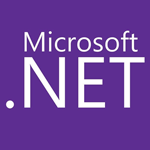Who Manual QA Engineer is
 A Manual QA (Quality Assurance) Engineer, also known as a Software Tester or QA Analyst, is a professional responsible for ensuring the quality and functionality of software applications and systems. Unlike automated testing, manual QA involves human intervention in executing test cases and verifying the software’s behavior against specified requirements.
Manual QA Engineers play a crucial role in ensuring the reliability, functionality, and user-friendliness of software applications before they are released to end-users. They provide valuable feedback to the development team, helping to improve the quality of the software and ensure a positive user experience. Manual testing is particularly useful for smaller projects or for scenarios where automated testing is not feasible or cost-effective. However, it may require more effort and time compared to automated testing for larger and more complex projects.
A Manual QA (Quality Assurance) Engineer, also known as a Software Tester or QA Analyst, is a professional responsible for ensuring the quality and functionality of software applications and systems. Unlike automated testing, manual QA involves human intervention in executing test cases and verifying the software’s behavior against specified requirements.
Manual QA Engineers play a crucial role in ensuring the reliability, functionality, and user-friendliness of software applications before they are released to end-users. They provide valuable feedback to the development team, helping to improve the quality of the software and ensure a positive user experience. Manual testing is particularly useful for smaller projects or for scenarios where automated testing is not feasible or cost-effective. However, it may require more effort and time compared to automated testing for larger and more complex projects. In which areas is Manual QA engineer most beneficial?
While automated testing is efficient for repetitive and extensive testing, Manual QA has its advantages, particularly when human intuition and expertise are required. Manual QA Engineers contribute significantly to ensuring the quality, functionality, and usability of software applications, supporting the development team in delivering a reliable and user-friendly product.
Manual QA Engineers are most beneficial in the following areas:
- Software Testing: Manual QA Engineers excel in performing thorough software testing, identifying bugs, defects, and issues that might not be easily detectable through automated testing.
- User Experience (UX) Testing: Manual QA Engineers play a crucial role in evaluating the user experience of software applications, ensuring that they are intuitive, user-friendly, and meet user expectations.
- Usability Testing: Manual QA Engineers conduct usability testing to assess how easily users can interact with the software and navigate through different functionalities.
- User Acceptance Testing (UAT): Manual QA Engineers collaborate with end-users to conduct UAT, ensuring that the software meets the users’ requirements and is ready for deployment.
- Exploratory Testing: Manual QA Engineers perform exploratory testing to identify unexpected defects and issues, mimicking real-world user scenarios.
- Ad-hoc Testing: Manual QA Engineers are skilled in performing ad-hoc testing, testing the software on-the-fly without predefined test cases.
- Small-Scale Projects: Manual QA is beneficial for smaller projects with limited resources, where setting up automated testing may not be practical.
- Quick Feedback: Manual QA provides quick feedback during development, allowing developers to address issues promptly.
- Compatibility Testing: Manual QA Engineers verify software compatibility across various devices, browsers, and operating systems.
- Complex Scenarios: Manual QA is valuable in testing complex scenarios where writing automated scripts might be time-consuming or not feasible.
- Early Stage Testing: Manual QA can be employed during the early stages of development when changes are frequent, and test cases need frequent modifications.
- Non-Functional Testing: Manual QA Engineers perform non-functional testing, such as performance testing, security testing, and stress testing.




 A backend developer, also known as a server-side developer, is a software engineer who specializes in building and maintaining the server-side components of web applications or software systems. Backend developers work behind the scenes to handle data storage, server logic, and communication with the front-end (client-side) of the application.
Backend developers play a critical role in ensuring the functionality, security, and performance of web applications and software systems. They work closely with front-end developers, database administrators, and other team members to deliver a complete and seamless user experience. Their expertise in server-side technologies and programming languages allows them to handle complex data processing and server operations efficiently.
A backend developer, also known as a server-side developer, is a software engineer who specializes in building and maintaining the server-side components of web applications or software systems. Backend developers work behind the scenes to handle data storage, server logic, and communication with the front-end (client-side) of the application.
Backend developers play a critical role in ensuring the functionality, security, and performance of web applications and software systems. They work closely with front-end developers, database administrators, and other team members to deliver a complete and seamless user experience. Their expertise in server-side technologies and programming languages allows them to handle complex data processing and server operations efficiently. 
 A data scientist is a professional who uses scientific methods, algorithms, and statistical techniques to extract insights and knowledge from large and complex sets of data. Data scientists play a crucial role in analyzing and interpreting data to inform business decisions, solve problems, and discover patterns, trends, and correlations.
Data scientists are in high demand across various industries, including technology, finance, healthcare, e-commerce, marketing, and more. Their expertise in data analysis and machine learning enables organizations to leverage data effectively, gain a competitive advantage, and make informed decisions to achieve their goals and objectives.
A data scientist is a professional who uses scientific methods, algorithms, and statistical techniques to extract insights and knowledge from large and complex sets of data. Data scientists play a crucial role in analyzing and interpreting data to inform business decisions, solve problems, and discover patterns, trends, and correlations.
Data scientists are in high demand across various industries, including technology, finance, healthcare, e-commerce, marketing, and more. Their expertise in data analysis and machine learning enables organizations to leverage data effectively, gain a competitive advantage, and make informed decisions to achieve their goals and objectives. 
 A Drupal developer is a software engineer who specializes in developing websites and web applications using the Drupal content management system (CMS). Drupal is a powerful and widely used open-source CMS that allows developers to create dynamic, scalable, and feature-rich websites with ease.
Drupal developers are in demand due to Drupal’s flexibility, scalability, and ability to handle complex web projects. Their expertise in Drupal development enables them to create robust and user-friendly websites for businesses, government organizations, educational institutions, and various other sectors.
A Drupal developer is a software engineer who specializes in developing websites and web applications using the Drupal content management system (CMS). Drupal is a powerful and widely used open-source CMS that allows developers to create dynamic, scalable, and feature-rich websites with ease.
Drupal developers are in demand due to Drupal’s flexibility, scalability, and ability to handle complex web projects. Their expertise in Drupal development enables them to create robust and user-friendly websites for businesses, government organizations, educational institutions, and various other sectors. 
 An Android developer is a software engineer who specializes in building applications for the Android operating system. Android is a widely used mobile operating system developed by Google, and it powers a vast majority of smartphones and tablets worldwide.
An Android developer is a software engineer who specializes in building applications for the Android operating system. Android is a widely used mobile operating system developed by Google, and it powers a vast majority of smartphones and tablets worldwide.
 An iOS developer, also known as an Apple developer, is a software engineer who specializes in developing applications for Apple’s iOS operating system. iOS is the operating system used on Apple’s mobile devices, such as iPhones, iPads, and iPod Touch.
An iOS developer, also known as an Apple developer, is a software engineer who specializes in developing applications for Apple’s iOS operating system. iOS is the operating system used on Apple’s mobile devices, such as iPhones, iPads, and iPod Touch.
 A React developer is a skilled software engineer who specializes in developing web applications using the React JavaScript library. React, also known as React.js or ReactJS, is a popular open-source library maintained by Facebook. It is widely used for building user interfaces and dynamic web applications.
A React developer is a skilled software engineer who specializes in developing web applications using the React JavaScript library. React, also known as React.js or ReactJS, is a popular open-source library maintained by Facebook. It is widely used for building user interfaces and dynamic web applications.


 A .NET developer is a software engineer who possesses a comprehensive skill set in both the broader Microsoft .NET framework and specialized knowledge in building web applications using ASP.NET. This versatile professional can develop various types of applications, such as desktop applications, web applications, mobile apps, and cloud-based services, using languages like C#, Visual Basic, or F#. Additionally, their expertise in ASP.NET allows them to focus specifically on web application development, creating dynamic and interactive web solutions.
A .NET developer is a software engineer who possesses a comprehensive skill set in both the broader Microsoft .NET framework and specialized knowledge in building web applications using ASP.NET. This versatile professional can develop various types of applications, such as desktop applications, web applications, mobile apps, and cloud-based services, using languages like C#, Visual Basic, or F#. Additionally, their expertise in ASP.NET allows them to focus specifically on web application development, creating dynamic and interactive web solutions.